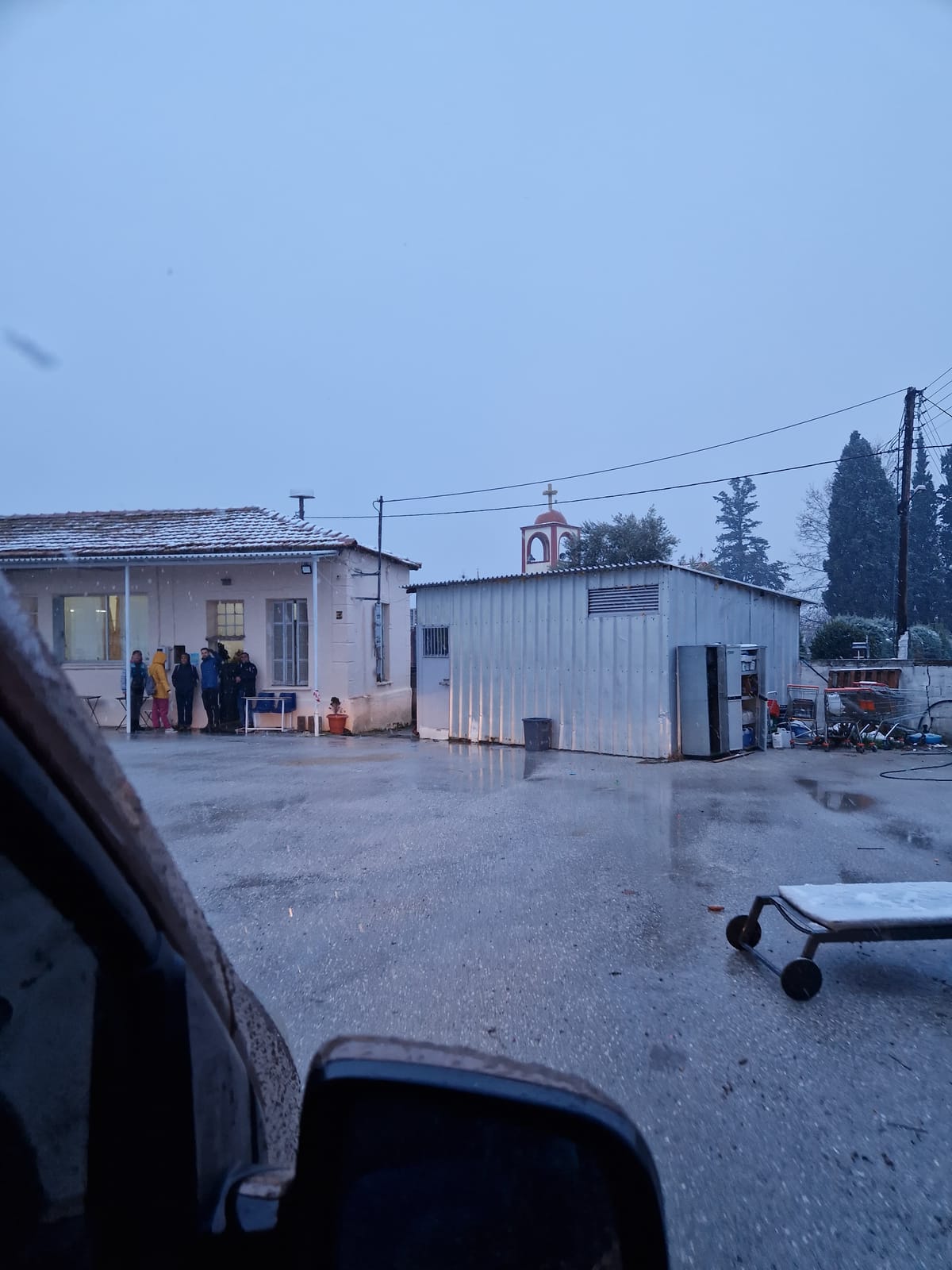Beyond Hopeless Headlines

Snow fell outside our apartment window in Thessaloniki. This was not the sun-drenched, postcard version of Greece that we had expected. While the drifting snow was magical in its own way, I couldn’t help but think of the thousands living nearby in refugee camps in little more than shipping containers. The cold has a way of making seemingly distant suffering more immediate.
For the past two months, my fiancé Grace and I have been working with Med'EqualiTeam, a medical NGO providing free health clinics to vulnerable populations, particularly refugees, in northern Greece. Before arriving, I had limited exposure to refugees’ experiences and my perspective was coloured by statistics, news headlines, and a well-meaning but distant sympathy. Instead, I found stories of profound humanity that has deepened my understanding of both hope and sorrow.
Of our experiences, several moments stay with me.
I think of our dear friend and translator from Palestine, who invited us into his modest apartment one evening. There we sat on his floor, surrounded by his three children, sharing a feast he and his wife had prepared despite their limited means. The joyous dignity with which they hosted us – their children dancing and laughing with us after the meal – helped me feel a truth that might be dismissed as a platitude: what unites us far outweighs what divides us, yet some must carry burdens that others can scarcely imagine.
The work itself taught me something unexpected about driving change and impact. Since my days as a self-righteous uni student I had imagined humanitarian work would be full of dramatic moments, grand gestures in stark places. Instead, we found that the most meaningful change often comes through steady, unglamorous persistence. It's in each clinic, the careful record-keeping and detailed processes, and the quiet determination of regular people persisting against seemingly impossible odds.

There were some dramatic moments, of course. I'll never forget watching Grace emerge from a clinic one night, carrying a limp child in her arms to an ambulance, blue flashing lights piercing through the darkness. For otherwise blissfully ignorant, non-medical people like myself, we may witness only a few of such dramatic moments in our lives. But each has a harrowing and clarifying effect. While this child would make a good recovery, It brought home what was at stake, the tragedy that can happen when people fall through the cracks.
But it's a different image that stays with me most vividly. On my final day at the clinics, a young boy, a toddler with a messy fringe and almond eyes was playing with a yellow balloon. He was keeping it aloft with the pure, concentrated joy accessible only to the most wise of adults but that comes naturally to all children. As our van pulled away for what would be my last time, he ran after our car, as I had done so often as a kid, bounding down suburban streets, chasing after the cars of leaving loved ones. The boy’s arms were still wrapped around his balloon in a joyful embrace, beaming. That moment encapsulated everything: the possibility for a more hopeful future, the joy despite circumstances, and the reality that while some could drive away, others remained.
While we had an intense experience working with these people, organisations like Med’EqualiTeam do not exist to give people like me interesting experiences. The experience of refugees is more raw and nuanced than my memories from the margins could ever render. These people need critical support, not to be demonised or glorified or perhaps just as damaging, ignored.
The UNHCR reports there are more than 43.7 million refugees worldwide. While some may paint refugees as ‘economic migrants’, the reality is that most refugees find shelter not in wealthy nations, but in countries already struggling with poverty and instability. The refugee crisis isn't just about statistics – though they matter. It's about real people who have crossed mountains and oceans, now caught between barbed wire and closed minds, between hope and bureaucracy, between the life they fled and the life they dream of building.
What I've learned is that this crisis demands more than our sympathy – it demands our attention and action. That might be through donating, volunteering, welcoming and supporting new arrivals or even by staying informed and rejecting negative narratives that criminalise or weaponise people who are seeking safety.
It can be hard to grapple with the idea of displacement, which is so entangled with colonial history, sectarian violence, and global inequality. It might seem hopeless to ruminate on the limitations of enforcing international law. But I submit there's one thing we should all agree on: no one leaves their home, their community, their sense of belonging, and risks their own life, or that of their children, for nothing.
